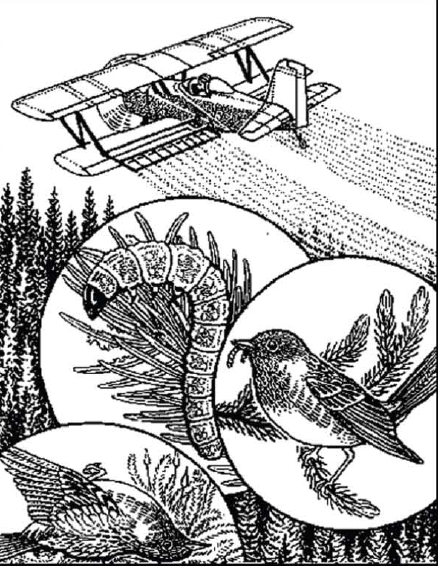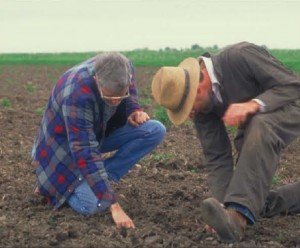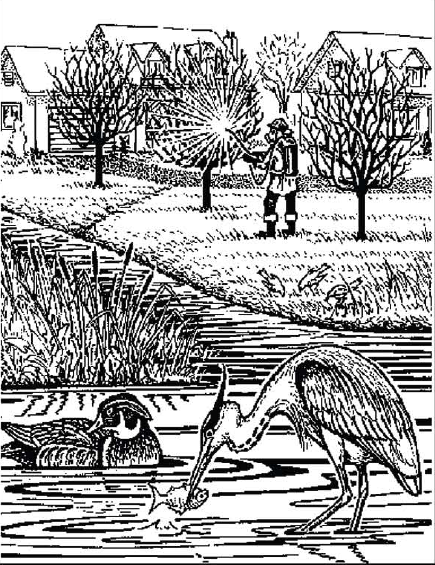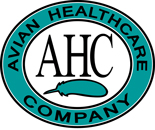Waarom biologisch?
– Onderstaande informatie is letterlijk overgenomen van de producent van Harrison’s Bird Foods en HEALx en is daarom in het Engels –
The U.S. Department of Agriculture has put in place a set of national standards that food labeled “organic” must meet, whether it is grown in the United States or imported from other countries. After October 21, 2002, when you buy food labeled “organic,” you can be sure that it was produced using the highest organic production and handling standards in the world.
What does “Organic” mean?
Organic agriculture is an ecological production management system that promotes and enhances biodiversity, biological cycles and soil biological activity. It is based on minimal use of off-farm inputs and on management practices that restore, maintain and enhance ecological harmony.
“Organic” is a labeling term that denotes products produced under the authority of the Organic Foods Production Act. The principal guidelines for organic production are to use materials and practices that enhance the ecological balance of natural systems and that integrate the parts of the farming system into an ecological whole..
Organic food handlers, processors and retailers adhere to standards that maintain the integrity of organic agricultural products. The primary goal of organic agriculture is to optimize the health and productivity of interdependent communities of soil life, plants, animals, people and the environment in general.
Organi c food is produced by farmers who emphasize the use of renewable resources and the conservation of soil and water to enhance environmental quality for future generations. Organic food is produced without using most conventional pesticides; fertilizers made with synthetic ingredients or sewage sludge; bioengineering (GMO); or ionizing radiation. Before a product can be labeled “organic,” a government-approved certifier inspects the farm where the food is grown to make sure the farmer is following all the rules necessary to meet USDA organic standards. Companies that handle or process organic food before it gets to your local supermarket or restaurant must be certified too.
c food is produced by farmers who emphasize the use of renewable resources and the conservation of soil and water to enhance environmental quality for future generations. Organic food is produced without using most conventional pesticides; fertilizers made with synthetic ingredients or sewage sludge; bioengineering (GMO); or ionizing radiation. Before a product can be labeled “organic,” a government-approved certifier inspects the farm where the food is grown to make sure the farmer is following all the rules necessary to meet USDA organic standards. Companies that handle or process organic food before it gets to your local supermarket or restaurant must be certified too.
What does “certified organic” mean?
“Certified organic” means that a non-profit, state or private certification organization, accredited by the United States Department Of Agriculture (USDA), has verified that products labeled as “organic” meet strictly defined organic standards.
Why is “certification” important?
• Provides for product differentiation
• Ensures product’s value
• Protects consumers from fraud
• Boosts consumer confidence
• The National Organic Program requires certification of
agricultural products making an organic label claim
What is the National Organic Program (NOP)?
The National Organic Program (NOP) is a new federal regulation created by the USDA to:
• Develop and implement national standards governing the
marketing of agricultural products as organically produced
• Facilitate commerce in fresh and processed food that is
organically produced
• Ensure consumers that such products meet consistent standards
Visit the USDA’s official National Organic Program website
How can I tell organically produced products from conventionally produced items?
You must look at package labels. Along with the national organic standards, USDA developed strict labeling rules to help consumers know the exact organic content of the food they buy. The USDA Organic seal also tells you that a product is at least 95 percent organic.
Does “natural” mean organic?
No. Natural and organic are not interchangeable. Other truthful claims, such as free-range, hormone-free, and natural, can still appear on food labels. However, don’t confuse these terms with “organic.” Only food labeled “organic” has been certified as meeting USDA organic standards.
The EWG (Environmental Working Group) concluded that more than half of the total dietary risk from pesticides was concentrated in just 12 foods from the produce section of the supermarket: strawberries, bell peppers, spinach, cherries, peaches, cantaloupe, celery, apples, apricots, green beans, grapes and cucumbers.
Organic is the answer. The use of the USDA Organic seal on Harrison’s products designates that third party organic certifiers, accredited by The USDA have confirmed that Harrisons’ Pet Products meets the guidelines specified in The National Organic Program. This is the same USDA Organic seal that you will find on certified organic products sold at your local grocery store or natural foods market.
Organics and the environment?
Conventional farming techniques have incorporated chemical pesticides for many years. In the beginning it was believed that these pesticides were the only way to maintain high crop yields. Not much thought was given early on to the cumulative dangers of these poisons as they were continuously being fed into the earth. Pesticides can cause serious environmental problems. Many pesticides are highly toxic to aquatic life. Pesticide pollution can be driven by rainfall, with contamination of rivers and groundwater occurring from water draining off land or infiltrating to the water table. We are concerned about pesticide residues in water and the effects of pesticides on wildlife. The increased use of pesticides is one aspect of a general intensification of agriculture over the past fifty years. As a consequence of the increased use of pesticides, the number of farmland birds has declined. Evidence suggests that certain pesticides that find their way into water can interfere with endocrine (hormone) systems, for example affecting fertility and reproduction in fish, and leading to developmental changes.
Organic farming, or sustainable agriculture, is the first step toward moving away from this dangerous trend. Proper crop rotation breaks the cycles of pest and disease problems and balances the nutrient demands of specific crops. Alternative pest controls, such as certain insects or plantings, are incorporated into agriculture. The result is a safe, fertile and biologically diverse ground soil without the dangers of pesticide runoff.
Suggested online resources to learn more about organics/environment:
The Organic Pages
For more detailed information on the USDA organic standards, visit http://www.ams.usda.gov/nop.

